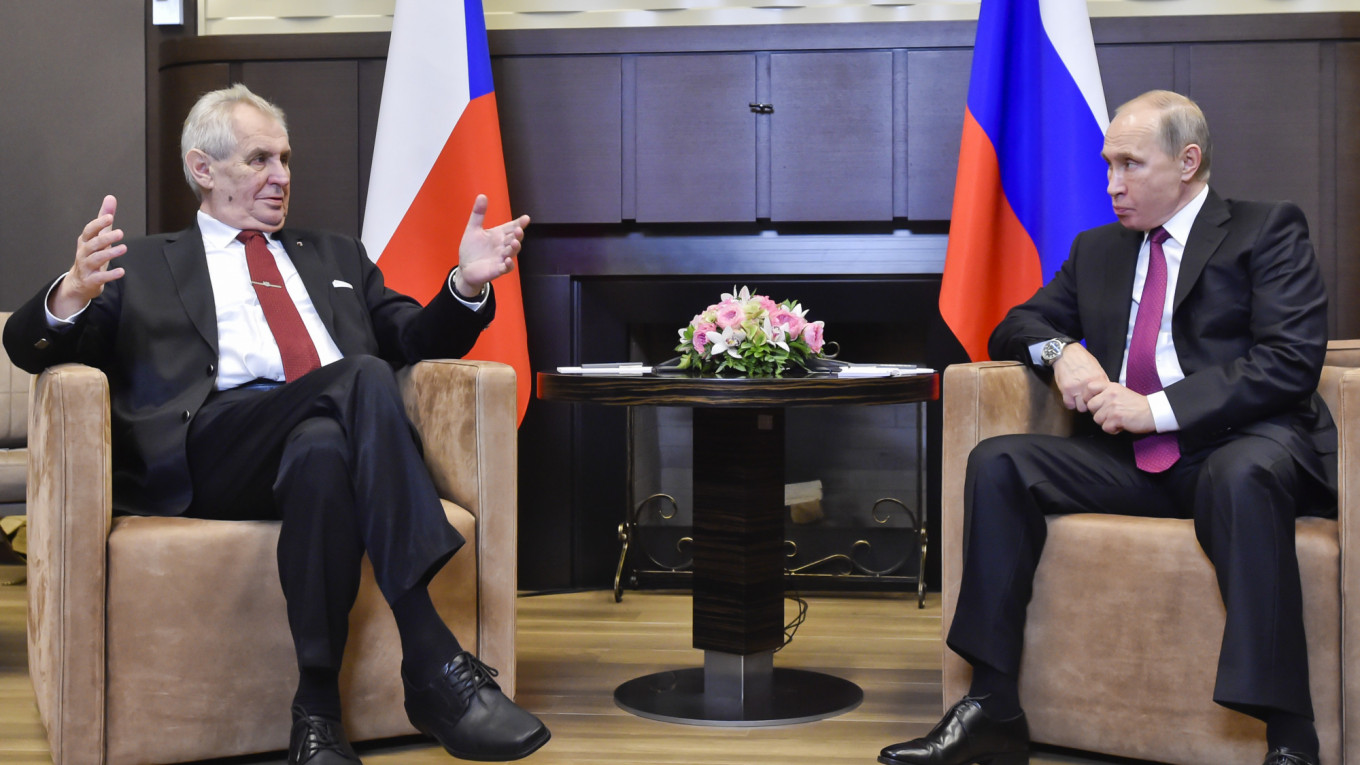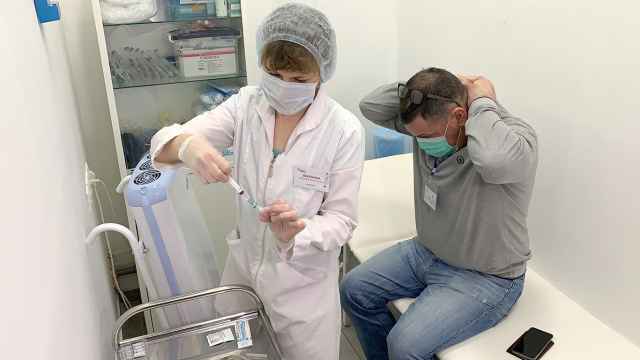The hard-hit Czech Republic has requested a delivery of Russia's Sputnik V vaccine in response to the delayed arrival of EU-procured jabs and will also consider Chinese inoculations, the president said Sunday.
The EU member tops the world in new infections per 100,000 people over the last 14 days and is second only to neighboring Slovakia in deaths, according to an AFP tally.
The vaccination rollout is slower than expected with only 650,000 jabs administered since December in the country of 10.7 million people, which Czech politicians blame on slow procurement by the EU.
"After consulting the prime minister, I have sent a letter to [Russian President] Vladimir Putin, asking him for a supply of the Sputnik vaccine," President Milos Zeman said on TV Prima.
"Information from the Russian embassy suggests it could arrive in the next few days," said the pro-Russian, pro-Chinese leader.
He said he would not mind if the country used the Chinese Sinopharm vaccine either as "vaccines have no ideology."
Neither Sputnik V nor Sinopharm have been approved by the European Union regulator EMA, unlike the Pfizer/BioNTech, Moderna and AstraZeneca/Oxford vaccines currently used in the Czech Republic.
But Zeman and Czech Prime Minister Andrej Babis said they would not wait for the EMA to give the green light.
"All we need is a stamp from the [Czech] State Office for Drug Control," said Babis, who visited Hungary and Serbia earlier this month to learn about the two vaccines.
"Sixty-five countries in the world want the Russian vaccine, including six EU countries, so why say, 'Jesus, it's terrible?'" said Babis.
"Believe me when I say that EU member states will also be asking for Sputnik in a few months," added the billionaire populist, who — like Zeman — has already received both jabs of the Pfizer/BioNTech vaccine.
A Message from The Moscow Times:
Dear readers,
We are facing unprecedented challenges. Russia's Prosecutor General's Office has designated The Moscow Times as an "undesirable" organization, criminalizing our work and putting our staff at risk of prosecution. This follows our earlier unjust labeling as a "foreign agent."
These actions are direct attempts to silence independent journalism in Russia. The authorities claim our work "discredits the decisions of the Russian leadership." We see things differently: we strive to provide accurate, unbiased reporting on Russia.
We, the journalists of The Moscow Times, refuse to be silenced. But to continue our work, we need your help.
Your support, no matter how small, makes a world of difference. If you can, please support us monthly starting from just $2. It's quick to set up, and every contribution makes a significant impact.
By supporting The Moscow Times, you're defending open, independent journalism in the face of repression. Thank you for standing with us.
Remind me later.






